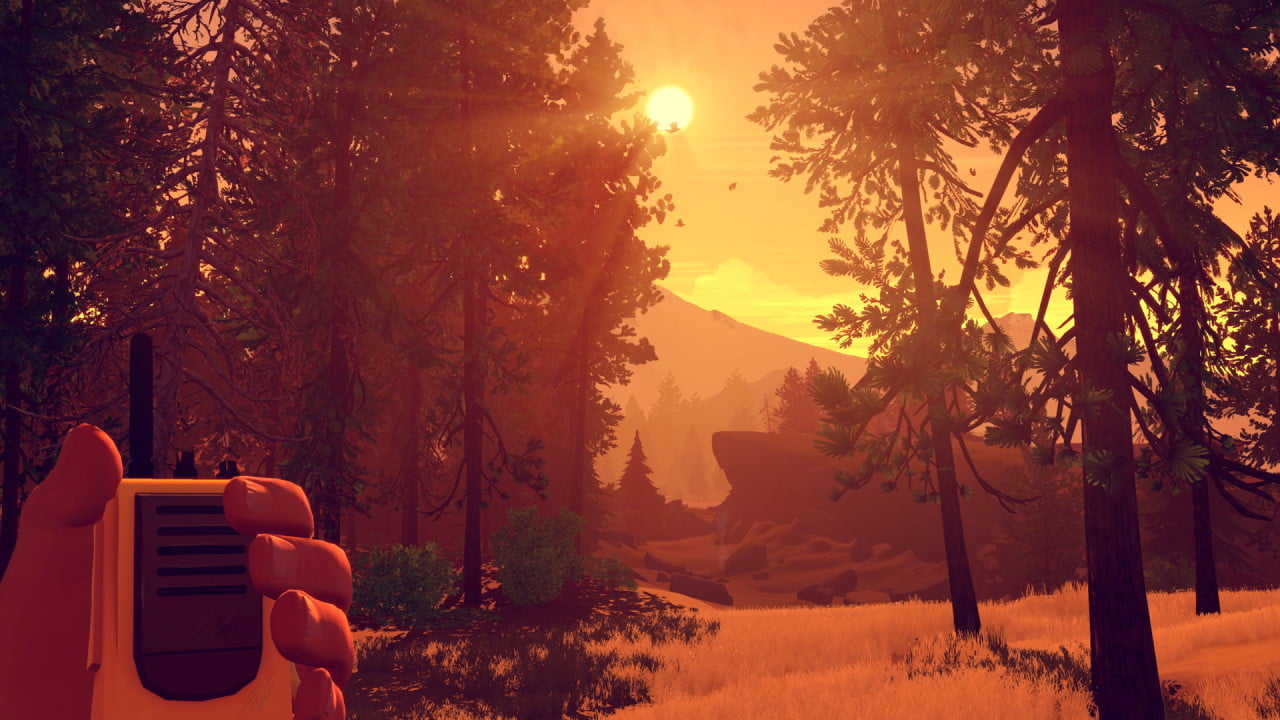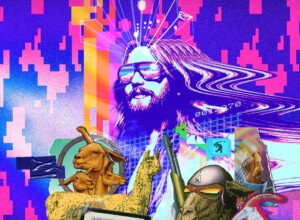On its fifth anniversary, Firewatch – with its themes of isolation and forging relationships over great distances – hits differently in the midst of a global pandemic.
It has been some time since Campo Santo delighted our senses with the soothing soundtrack and autumnal colour palette of Firewatch – a game that could set even the most uptight person at ease. So long in fact, that the game has reached its fifth birthday and, to mark the occasion, I decided to take a trip to the peaceful peaks of Two Forks Tower once more. I found that, despite standing atop the same watchtower, the view was different.
Across those five years, things have… changed. Back in 2016, Firewatch was among my most anticipated games, and reading about its warm disposition married with a mystery narrative, superb performances and tackling of isolation only added fuel to that fire. (Pun intended, obviously.) Fancying myself a bit of a critic at the time, I revelled in this quiet gaming affair – likely influenced by my recent playthrough of Gone Home – and was confident that I got what the game was trying to say, as our protagonist throws himself into the throngs of isolation.
However, amid our current landscape, where isolation has become so common and reviled a word, I started Firewatch for the first time since. I experienced something far more nuanced, heartbreaking, powerful, and unexpectedly uplifting this time around.

Firewatch centres around Henry and Delilah, two fire lookouts spending the summer of ’89 guarding the peaceful forests of the Shoshone National Park. Separated by miles of woodland, the two communicate through the use of handheld radios, as Delilah slowly familiarises Henry with the various responsibilities of his job. Players spend their time hiking across the idyllic sunset-tinged forests, dealing with boozing teens and menial tasks.
However, as the days tick over, Henry and Delilah become engrossed in an eerie mystery, with late-night break-ins, hidden science camps and recorded conversations. These were the elements that consumed me on my first playthrough, yet as I felt the digital Wyoming sun on my face once more, its mystery faded away, leaving two characters kept in isolation, with a deep desire to connect.
That desire is something we can all relate to, as our coffee catchups and social gatherings have been replaced by stagnated Facetime calls and an incessant barrage of Zoom parties. As I took part in Henry and Delilah’s witty back-and-forth, I couldn’t help but see the parallels in our disconnected age, with that physical presence receding in place of our own forms of handheld radios. And upon that epiphany, Firewatch comforted some of my deepest social insecurities that have reared their ugly heads during these isolated times.
My friends and I have never been particularly communicative over the phone – a simple date, time, and place for our next meet up would often suffice. As those meetups subsided, however, all that was left was silence. My eagerness to keep busy as we shut ourselves indoors, resulted in extended periods without contact – only the odd message sent or a phone call here or there. But soon enough I began to question the longevity of friendships surviving over unstable Wi-Fi connections when that need for physical interaction wasn’t being met. Much like Henry and his fear to face his problems head-on – which takes the form of his wife, Julia, suffering from early-onset dementia – I turned my back on those relationships, accepting their fate. And this is where Firewatch stepped in.
As I witnessed Henry and Delilah’s relationship blossom through the static of their radios, I found an inspiring message embedded in Campo Santo’s work, which may have been intended, but its cultural relevance a half-decade later could have never been anticipated.
Without meeting Delilah in person, the lonesome two still manage to evolve from co-workers to close friend and even flirt with romance, all within the limitations of their remote form of communication. With the simplistic control scheme, a conversation is never more than a trigger squeeze away. Whipping out your radio becomes as natural to the player as breathing across your time in the Shoshone. In one of the game’s most intimate moments, the player will gaze at a blooming fire – aptly titled “The Flapjack Fire” in my game – as Henry and Delilah’s scintillating chemistry comes to a head.

“I love how they look at night,” Delilah comments on the fire. “When the sun is down you can just… get lost.”
It is a heart-warming moment where all physical barriers and distancing fade from the mind, resulting in my own realisation that those supposedly struggling relationships could endure, succeed and thrive, even in isolation. It wasn’t long after the credits rolled on Firewatch when I organised my first video chat with friends. We joked and laughed till the early hours of the morning when one eventually commented:
“Why has it taken us so long to do this?”
And I didn’t quite have the answer. The unwillingness to grow in these uncertain times? The ease of closing yourself to the world? I was so determined to hold my breath and await the days that we could meet up at the pub, where the date, time and place was all the digital contact we needed.
But Firewatch showed me that I didn’t need to wait. It showed me that even in the deepest forms of isolation, with not a person to be found for miles, that we still desire connection, and that we should fight for it. Even though Henry and Delilah never got to embrace each other, what they had was special, and that’s something we can all relate to, now. Something that so much of the world is experiencing.
And while there may be that temptation to close yourself off and wait with bated breath for any semblance of normalcy, we should all just take a step back and take in the view – whether that be the tranquil plains of Wyoming or the quiet streets outside your home – and realise that we may be isolated, but we definitely aren’t alone.
Enjoyed this long read? Please consider supporting Thumbsticks on Patreon to enable more of it, or buying us a coffee to say thanks.






